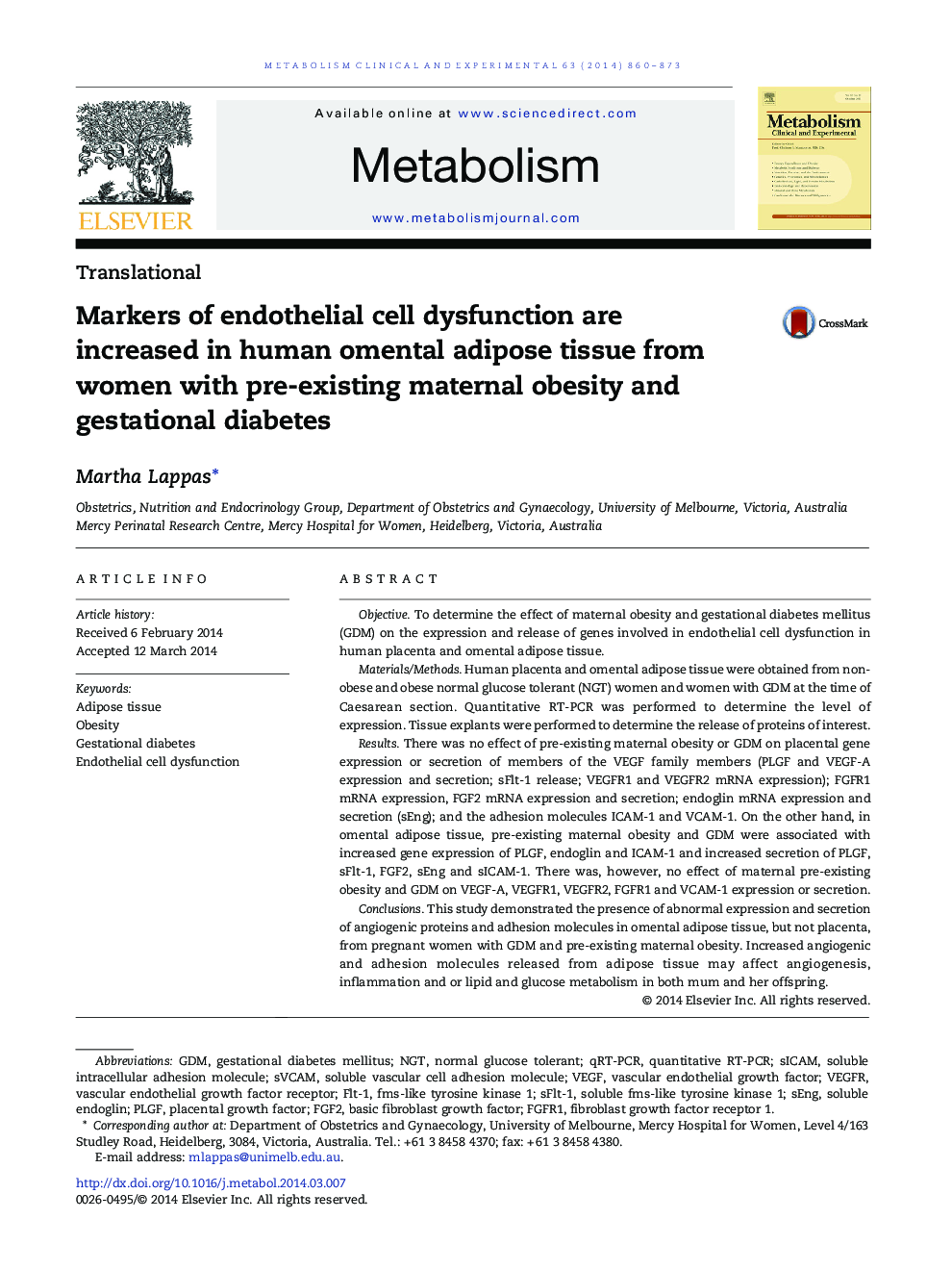| Article ID | Journal | Published Year | Pages | File Type |
|---|---|---|---|---|
| 2805569 | Metabolism | 2014 | 14 Pages |
ObjectiveTo determine the effect of maternal obesity and gestational diabetes mellitus (GDM) on the expression and release of genes involved in endothelial cell dysfunction in human placenta and omental adipose tissue.Materials/MethodsHuman placenta and omental adipose tissue were obtained from non-obese and obese normal glucose tolerant (NGT) women and women with GDM at the time of Caesarean section. Quantitative RT-PCR was performed to determine the level of expression. Tissue explants were performed to determine the release of proteins of interest.ResultsThere was no effect of pre-existing maternal obesity or GDM on placental gene expression or secretion of members of the VEGF family members (PLGF and VEGF-A expression and secretion; sFlt-1 release; VEGFR1 and VEGFR2 mRNA expression); FGFR1 mRNA expression, FGF2 mRNA expression and secretion; endoglin mRNA expression and secretion (sEng); and the adhesion molecules ICAM-1 and VCAM-1. On the other hand, in omental adipose tissue, pre-existing maternal obesity and GDM were associated with increased gene expression of PLGF, endoglin and ICAM-1 and increased secretion of PLGF, sFlt-1, FGF2, sEng and sICAM-1. There was, however, no effect of maternal pre-existing obesity and GDM on VEGF-A, VEGFR1, VEGFR2, FGFR1 and VCAM-1 expression or secretion.ConclusionsThis study demonstrated the presence of abnormal expression and secretion of angiogenic proteins and adhesion molecules in omental adipose tissue, but not placenta, from pregnant women with GDM and pre-existing maternal obesity. Increased angiogenic and adhesion molecules released from adipose tissue may affect angiogenesis, inflammation and or lipid and glucose metabolism in both mum and her offspring.
